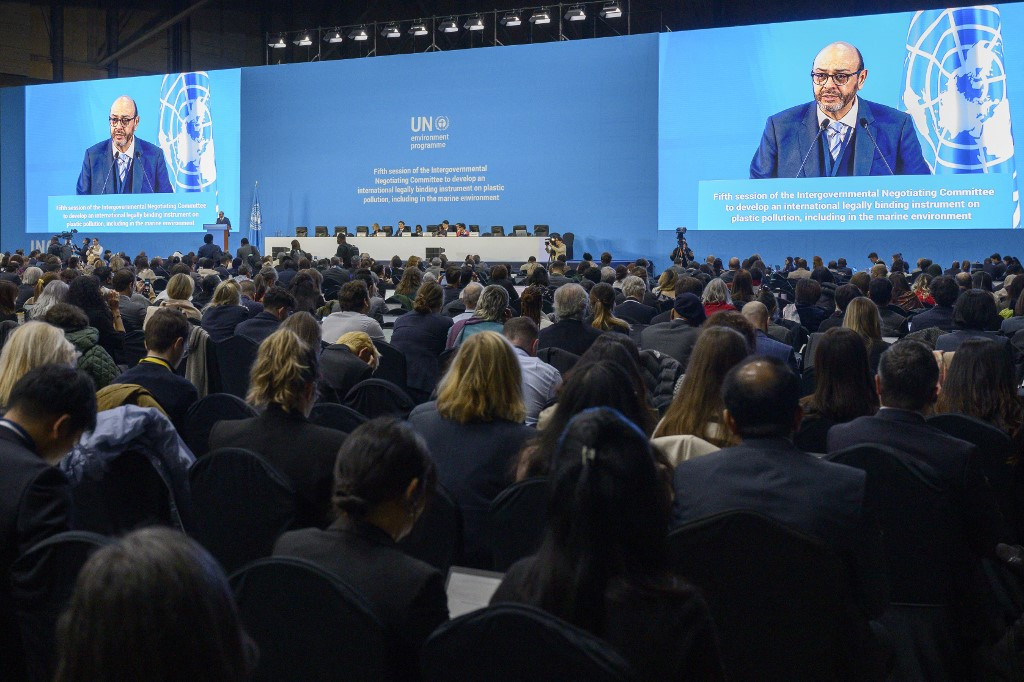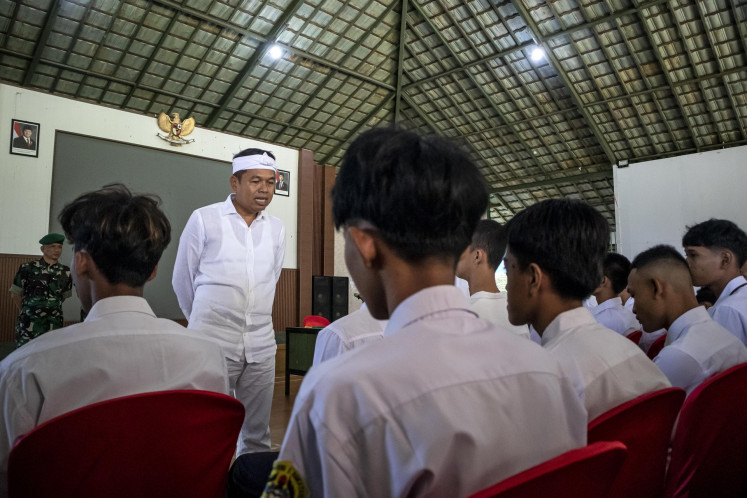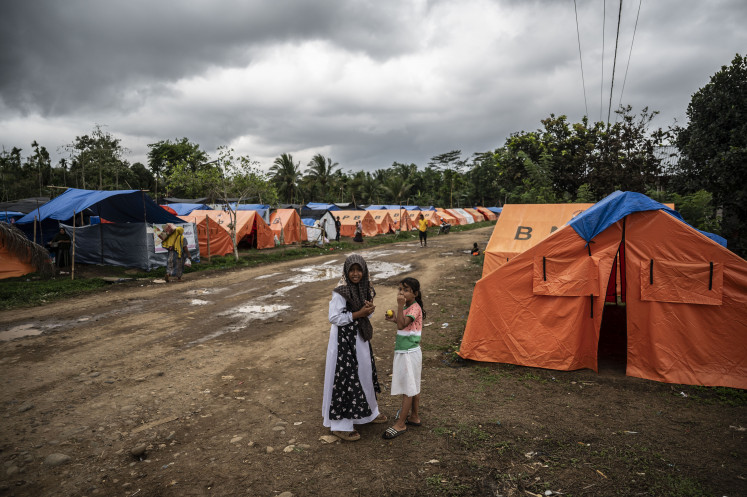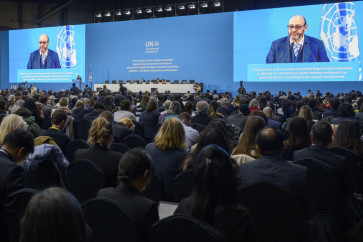Popular Reads
Top Results
Can't find what you're looking for?
View all search resultsPopular Reads
Top Results
Can't find what you're looking for?
View all search resultsIndonesia slammed for ‘weak’ ambitions on cutting plastic pollution
In an official document submitted to the plastic treaty negotiation, Indonesia argued against reducing national plastic production, saying that current manufacturing capacity is not enough to fulfill the national demand of plastic products.
Change text size
Gift Premium Articles
to Anyone
W
ith little negotiation time left to produce the world’s first treaty to curb plastic pollution, Indonesia was criticized for not showing enough ambition to cut down production of plastic products in its official document submitted at the conference in South Korea.
Environmentalists slammed the position, calling the Indonesian delegation unserious in working to cut down its production of plastic waste, which has been polluting not only the environment within the country’s borders but also other places as far as small island countries in the Pacific.
The summit in Busan, officially named the fifth Intergovernmental Negotiating Committee (INC-5), is the final round of negotiation to produce a new agreement to end plastic pollution following the adoption of a United Nations Environment Assembly resolution.
The negotiations are scheduled to end by Sunday, but the talks have been progressing slowly because of disagreements between a coalition of so-called High Ambition Countries that want to limit plastic production and address waste management, and oil-producing nations that solely focus on downstream waste solutions.
Amid the disagreements in Busan, Indonesia submitted its positions on various issues in the negotiations. In the text proposal on the plastic supply issue uploaded to the UN website on Thursday morning local time, Indonesia argued that the country’s plastic industry had been facing a shortage in meeting the national demand for plastic products.
The delegation acknowledged that nearly 40 percent of waste generated in Indonesia may leak into the surrounding environment because of a lack of infrastructure, funding and technology. But they further argued that reducing national plastic production “would not be the solution” because of the high demand for plastic products for industrial, agricultural and medical purposes.
“We are concerned that focusing largely on the reduction of plastic production, without better substitute material, will also not be effective in reducing negative environmental aspects,” the delegation wrote in the proposal.



















